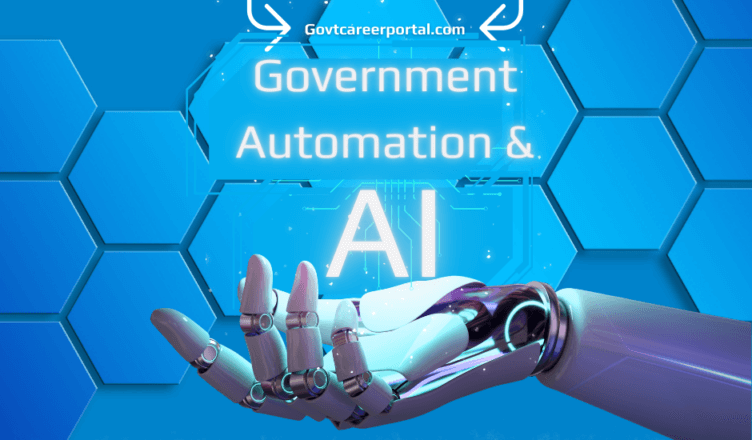Automation and artificial intelligence (AI) are becoming more prevalent in government operations as a result of the quick advancement of technology. The skills needed for future employment and job functions in the public sector are significantly impacted by this change. Let’s examine how these technologies affect government employment and the changing skill set required to succeed in this new environment.
The Effect of AI and Automation on Job Roles
- Analyzing Data and Making Decisions: Artificial intelligence (AI) systems can help government officials make well-informed decisions because of their rapid processing speeds of large amounts of data. Predictive analytics, for example, can support crisis management, policy creation, and resource allocation.
- By simplifying repetitive administrative duties like data entry and processing permits, AI and automation can increase productivity. Employee engagement may increase as a result of government workers being able to concentrate on more intricate and strategic tasks.
- Improved Service Delivery: By offering prompt answers to questions and assisting users with government services, AI chatbots and virtual assistants can increase citizen engagement. Better public satisfaction and easier access to services may result from this.
- Concerns about employment Displacement: Although automation and artificial intelligence (AI) might increase productivity, they may also cause employment displacement in some occupations, especially those requiring repetitive labor. Important considerations regarding how to assist impacted employees are brought up by this.
- Emergence of New professions: As certain jobs become outdated, new professions that call for a combination of interpersonal and technological skills will appear. Data analysts, AI ethics compliance officers, and digital transformation professionals are among the increasingly common jobs.
Competencies Required for the Future
Employees will need to acquire a wide range of skills in order to adjust to the shifting nature of government positions brought about by automation and artificial intelligence:
- Digital literacy: It will be crucial to have a basic understanding of automation technology, artificial intelligence, and digital tools. New software and systems should be easy for staff to use
- Data Analysis: It will be essential to be able to analyze data effectively in order to make informed judgments. Employees of the government will need to be skilled at deciphering complicated datasets and utilizing data visualization technologies.
- Adaptability: It will be essential to be able to adjust to quickly evolving procedures and technologies. Employees must to be receptive to new approaches and ongoing education..
- Interpersonal Skills: As mundane activities are replaced by technology, effective communication and interpersonal skills will be essential for teamwork and fostering relationships with coworkers and residents.
- Ethics and Governance: It’s critical to comprehend the moral ramifications of automation and artificial intelligence. Workers in the government will have to deal with concerns about security, privacy, and equity in AI applications.
- Project management: Since a lot of government programs are now tech-driven, having good project management abilities can help guarantee that projects are carried out successfully and efficiently.
In conclusion
There are potential and obstacles in integrating automation and artificial intelligence in governance. There is a considerable chance for more efficiency and better public service delivery, even though some roles may become less important. Government workers, both present and future, must embrace lifelong learning, acquire new skills, and adjust to the shifting needs of their jobs in order to prosper in this dynamic environment. They can guarantee that they continue to be important members of a creative and adaptable public sector by doing this.
The question still stands as we look to the future: How can governments best equip their workers to deal with this technological revolution? We must have this discussion right away as we work together to influence public service’s future.
Stay tuned with govtcareerportal

